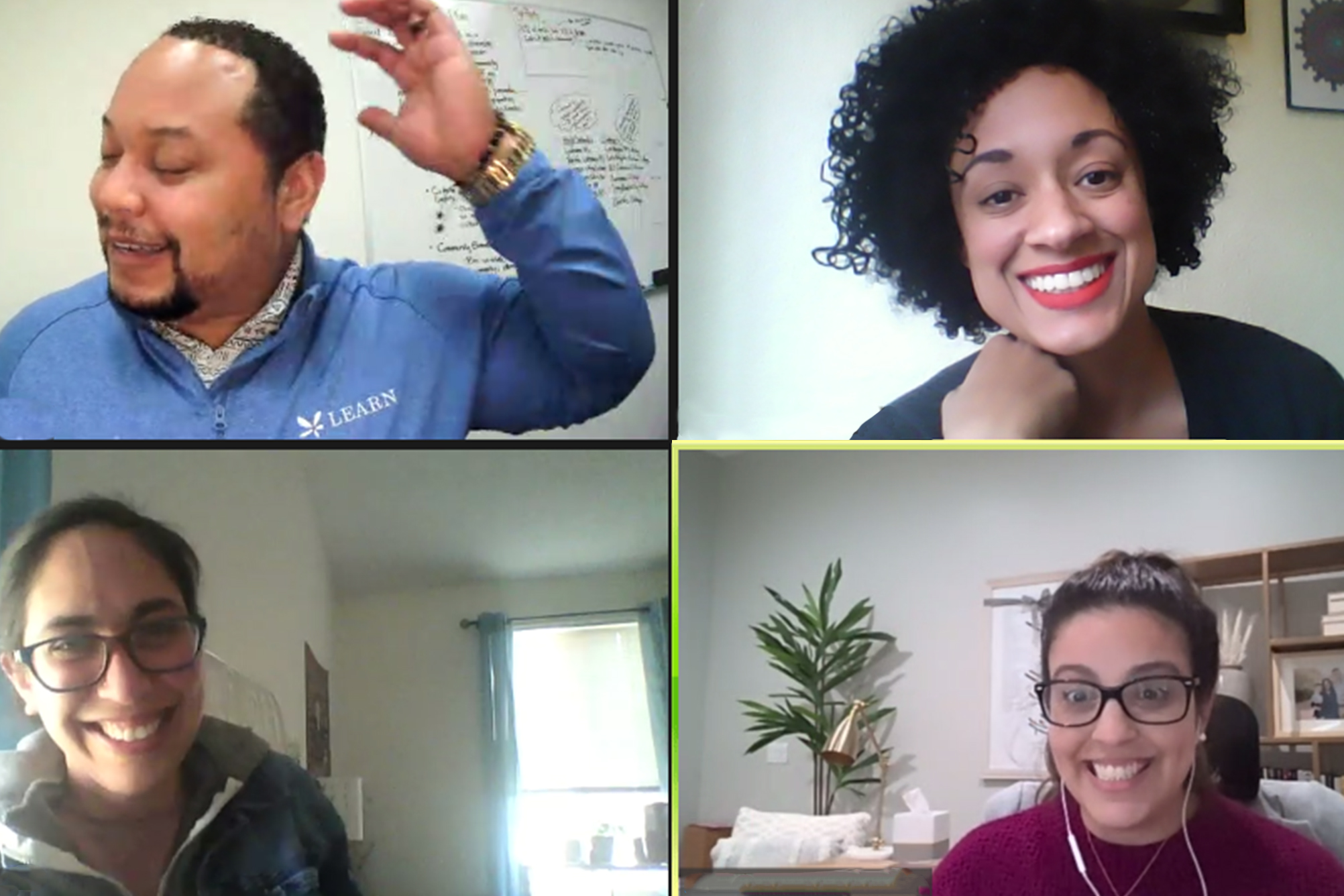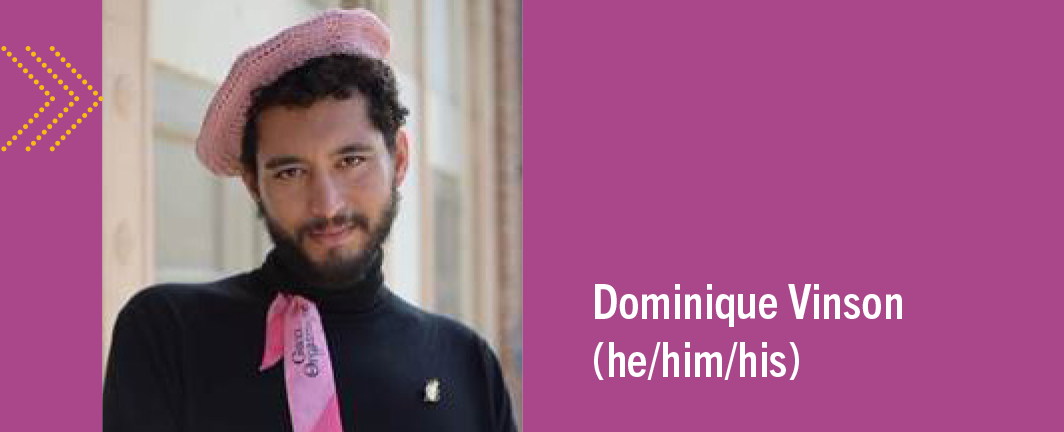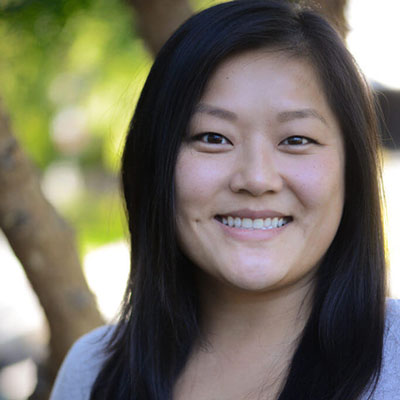DEI Annual Report:
Highlights
Highlights & Updates
Training Up
Staff development, at all levels, is paramount to LEARN’s DEI goals and objectives. Providing ongoing, relevant, culturally-sensitive training and resources to build awareness and competency is critical.
READ MORELEARNing from Each Other
In order to help foster a diverse and inclusive workplace, in 2021 LEARN launched a DEI Employee Resource Group (ERG). The group built off an informal gathering of West Coast employees who had begun meeting in 2020.
READ MOREFinding Connections
As part of LEARN’s DEI journey, in 2021 the organization launched an affinity group program across the organization.
READ MOREInvesting in Increasing Diversity
At LEARN, a critical component to achieving the organization’s mission requires providing opportunities for underrepresented populations and the active cultivation of diverse future leaders.
READ MOREBIPOC Mentorship Group
Prior to the work with the Future Leaders Diversity Advancement Program, LEARN created a BIPOC (Black, Indigenous, and people of color) Mentorship group to help staff share knowledge and expertise with technicians of color.
READ MOREBuilding our Leaders: In Their Own Words
Diversity, equity and inclusion are not just human resource areas of focus, that’s why in early 2021, LEARN piloted a new program, sending several staff to participate in Cornell University’s online Diversity, Equity and Inclusion Certificate program.
READ MORE
Training Up
Staff development, at all levels, is paramount to LEARN’s DEI goals and objectives. Providing ongoing, relevant, culturally-sensitive training and resources to build awareness and competency is critical. In 2021, LEARN began implementing trainings and sessions that would do just that, beginning with senior leadership and all those who manage teams.
In 2021, 12 of LEARN’s most senior executives engaged in a half-day workshop designed to help them better understand their role in leading inclusively and to reinforce how diversity, equity and inclusion impacts business results and decision making at work. This training sought to provide actionable takeaways that will help leaders achieve greater levels of personal and professional excellence. One key aspect of the training relevant was to illuminate the importance of having diverse networks. The interactive session helped identify different dimensions of diversity and/or perspectives that might be missing. Participants were asked to evaluate their networks based on eight dimensions of diversity to help identify the people they turn to for input, strategic advice and delivery of critical projects and in turn, create an action plan for maintaining or diversifying their Go-To networks.
In addition, over the summer of 2021, LEARN simultaneously launched an online training module focused on diversity/inclusion in the workplace and managing bias.
The 80-minute training was designed to explore key concepts like identity, power, privilege, and how biases can affect actions and the work environment. In addition to the training, people-managers took pre and post surveys to help LEARN measure success and continue to develop our DEI initiatives.
LEARN began staff training with executive and senior staff to not only set an example, but to ensure they were familiar with critical concepts and theories they need to be equipped to lead the entire team through the DEI journey.
LEARNing from Each Other
In order to help foster a diverse and inclusive workplace, in 2021 LEARN launched a DEI Employee Resource Group (ERG). The group built off an informal gathering of West Coast employees who had begun meeting in 2020. The key goals of the ERG are to:
| Provide ideas, information and feedback to DEI Steering Committee and LEARN leadership to support organization’s DEI journey | |
| Encourage deeper collaboration and networking across the organization |
The ERG is open to all staff, and in 2021 the group held monthly meetings on a range of topics, including current events, reactions and lived experiences relating to race, religion and ethnicity, as well as a roundtable conversation on neurodiversity.

Finding Connections
As part of LEARN’s DEI journey, in 2021 the organization launched an affinity group program across the organization. These voluntary groups were designed to foster a diverse, inclusive workplace aligned with the organization for employees who share a characteristic around, for example gender, ethnicity, religious affiliation, lifestyle or other interests to connect. The groups allow for networking, mentorships and other opportunities for professional and personal development in safe and brave spaces that allow members can share ideas and experiences. Each affinity group has its own charter that clarifies the purpose of the group and helps the participants focus on clear goals.
While each group is employee-led, LEARN provides each group with a central platform (Diversity SharePoint) to share information about upcoming meetings and activities. LEARN also maintains an Affinity Group Liaison who helps coordinate new and existing groups and helps advise on general guidelines.
In 2021, LEARN staff established the following affinity groups:
Asian Learning, Leadership, and Inclusion Network (ALL-IN)
To support AAPI (Asian American Pacific Islander) employees to thrive at LEARN, affirm their identities and develop skills to become leaders in the organization.
BIPOC Supervisors
To build relationships and a workplace that is conducive to our success through addressing openly and honestly situations which we have found difficult and having our concerns addressed.
GayST
To discuss how we can best promote inclusivity across LEARN, among staff and clients, and to provide a space to support staff who are navigating being LGBTQ+.
Health and Wellness
To provide an opportunity for staff to collaborate and provide support for each other while navigating health journeys that often take up mental and physical space when providing services and completing job requirements.
Hispanic/Latinx Women
To understand and discuss our role in the Hispanic community and how our rearing styles have changes/evolved over generations; as well as discuss what we can do with our perspective as behaviorists to better serve an underrepresented client demographic
Lilmod לִלמוֹד
To learn about Judaism, each other’s experience, Jewish history, current events, etc. and caucus amongst other Jewish LEARN employees to discuss matters relevant to our community and specifically how they may play out in a work environment.
Investing in Increasing Diversity
At LEARN, a critical component to achieving the organization’s mission requires providing opportunities for underrepresented populations and the active cultivation of diverse future leaders. With that understanding, in 2021 LEARN took significant steps towards that by creating LEARN’s Future Leaders Diversity Advancement Initiative.
Prior to launching the program, LEARN did some extensive research to identify the need and the best course of action. The organization extended an open invitation to all Black behavior technicians from across the network to participate in a forum (The Black Voices Forum), answer a few questions and engage in a dialogue. A total of 29 participants participated and shared their perspectives on their place in the field of ABA and whether becoming a Board Certified Behavioral Analysts (BCBA) was in the cards for them. Questions included what factors contributed to their decision to pursue or not pursue an advanced degree as well as how their experience with LEARN shaped their perception of the Behavior Analyst position as well as what LEARN could do to support their development.
Overwhelmingly, three themes emerged that are consistent with the sentiments of many minorities in working as Behavior Technicians across the industry:
| 1 |
There was immense respect and admiration for the field of ABA. People shared story after story of their experiences in the field working with their clients and families. They were proud of the impact that the science had on their clients. However, what was compelling was the degree of concern surrounding the fact that there was a void of BCBAs that looked like them. There was a perception of unattainability. |
| 2 |
The costs associated with an advanced degree presented as a significant barrier to becoming a BCBA. The average cost for a master’s degree in ABA ranges from $11,000 to $24,000. Furthermore, some employees had yet to complete their bachelor’s degree, so the possibility of becoming a BCBA seemed like an expensive venture. |
| 3 |
Finally, there was a feeling of limited opportunities for sustained growth. Participants reported feeling support from their managers while they were on their cases. However, the high-intensity coaching and mentorship seemed to be reserved for staff already on track to becoming behavior analysts. |

Future Leaders Diversity Advancement Initiative
To help alleviate these barriers, in 2021 LEARN launched its inaugural learning group under the Future Leaders Diversity Advancement Initiative: The National University Black Applied Behavior Analysis (ABA) Master’s Fast Track Cohort.
The partnership with National University allows for a Black staff to go through a master’s program to obtain their degree in ABA and ultimately contribute to the diversification of the Behavior Analyst Certification Board (BACB) membership. Through LEARN’s partnership with the university and contributions by LEARN, the cohort tuition is completely paid for. In addition, a mentorship team supports each member of the cohort to provide guidance and assistance from the start of their enrollment to their graduation ceremony and beyond.
LEARN is excited about the potential of the Future Leaders Diversity Advancement Initiative and looks forward to launching additional cohorts in the future.
At the end of 2021, there were a total of 10 participants selected for the Black ABA Master’s Fast Track Cohort.
BIPOC Mentorship Group
Prior to the work with the Future Leaders Diversity Advancement Program, LEARN created a BIPOC (Black, Indigenous, and people of color) Mentorship group to help staff share knowledge and expertise with technicians of color.
Technicians of color were paired with behavior analysts in the LEARN network to help increase retention and promote the growth and development of future leaders.
Mentees and mentors were required to meet the organizations’ professional and clinical competencies and maintain good employment standing for at least one year. Mentees would be expected to provide a letter of recommendation from their primary supervisor and demonstrate a desire to grow professionally. Mentors would have to demonstrate a high degree of cultural sensitivity by completing cultural sensitivity training.
Being mindful of best practices regarding how to achieve optimal outcomes for mentoring programs, mentees and mentors had an opportunity to interview and rank each other to achieve the best pairing. The goal was to begin the mentor/mentee relationship with familiarity and commonality.
The mentorship group consisted of monthly group meetings, as well as monthly one-on-one meetings. The group meetings were designed for the group to grow together, starting with team-building exercises then focusing on specific topics of interest related to professional development. The aim was to create a setting where concepts can be introduced and ideas that promote growth could be formulated.
One-on-one meetings were a time to provide focused support and coaching in a more intimate setting where mentees could share their aspirations. Vulnerability was a key goal, because it would allow for honest discourse and lead to a more genuine mentee/mentor relationship.
Building our Leaders: In Their Own Words
Diversity, equity and inclusion are not just human resource areas of focus, that’s why in MONTH 2021, LEARN piloted a new program, sending several staff to participate in Cornell University’s online Diversity, Equity and Inclusion Certificate program.
The certificate is a way for any individual committed to building an aware and inclusive to glean additional skills and tools. One of the staff participants, Dominique Vinson (he/him/his), Manager of New Hire Training on the West Coast, shared some of his reflections from the experience.

“Diversity, Equity, and Inclusion (DEI) has always been an integral part of LEARN’s DNA. After the summer of 2020 the passion for, and importance of, DEI became even more apparent to us. The Cornell Diversity, Equity & Inclusion Certification will help show that LEARN prioritizes diversity and empowers staff to fully celebrate what makes each of us unique in order to best serve our families and support our colleagues.
The Cornell DEI Certification is composed of four courses: Counteracting Unconscious Bias, Diversity and Inclusion at Work, Fostering an Inclusive Climate and Improving Engagement.
Each course spans four weeks and includes readings, opportunities to have discussions with experts, class discussions, tools that can be implemented at the learner’s organization, and a final project composed of multiple parts.
During the Counteracting Unconscious Bias course, we dove into the literature and research to identify the dimensions of diversity that matter most in organizations. We also learned to recognize unconscious bias and how it affects the way that people perceive, evaluate and react to others and to identify interventions that will help override errors in judgment and decision-making.
The Diversity and Inclusion at Work course highlighted the distinctions between diversity and inclusion, promoted careful assessment of stereotypes and prejudices that influence behavior at work, and examined methods of fostering inclusion at work.
In the Fostering and Inclusive Climate course, we examined the role of leadership in cultivating an inclusive climate, as well as explored the dynamics of inclusive climates and assessed the inclusiveness of our organization’s climate.
Through the Improving Engagement course, we learned to better assess staff for evidence of engagement, to increase engagement using appropriate strategies and to identify ways to take effective actions to improve engagement.
Each of these courses help to provide leaders with valuable insight into the psychological processes that impact the ways people interact with each other. LEARN’s culture is one that centers trust, respect, tolerance and empathy, and is one of the many reasons I’m proud to work for this organization. Completing the Cornell DEI Certification was extremely valuable and rewarding both personally and professionally. The knowledge I’ve gained through the certification has not only helped me to become a more informed and compassionate leader, but has helped to further foster LEARN’s culture and commitment to DEI.”



